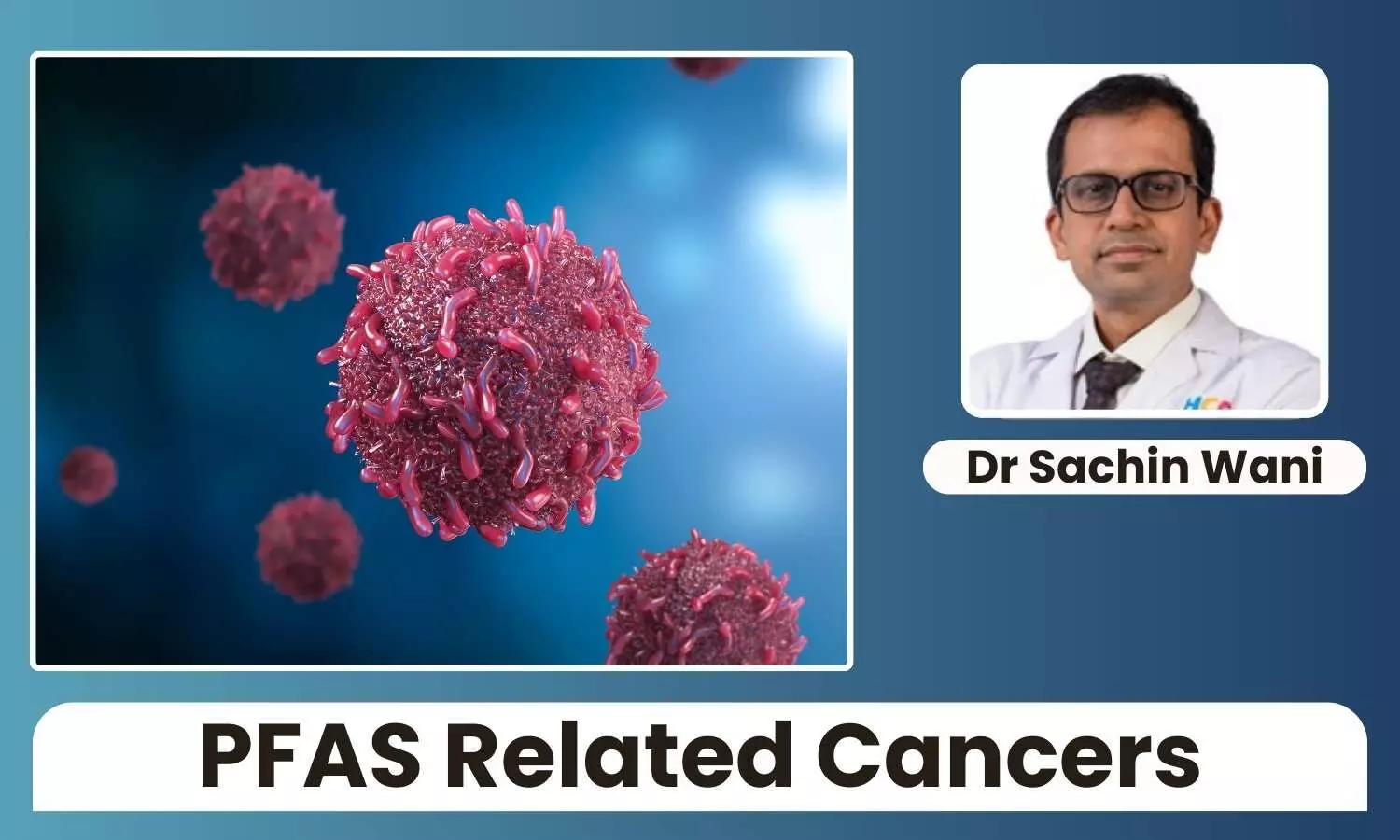Are Forever Chemicals Deteriorating Your Health? Understanding Alarming Link to Cancer - Dr Sachin Wani

In our modern world, chemicals play an essential role in creating products that make daily life more convenient. However, some of these compounds come with significant health concerns.
Among them are forever chemicals, scientifically known as polyfluoroalkyl and perfluoroalkyl substances (PFAS). These synthetic compounds, which combine fluorine and carbon atoms, are nearly indestructible in nature—hence the name “forever chemicals.”
PFAS have been widely used in consumer products for their water, grease, and stain-resistant properties. However, their persistence in the environment and potential health risks, including links to cancer, have raised alarms globally.
Do PFAS Cause Cancer?
The scientific community is still studying the full extent of PFAS-related health risks. However, research suggests potential links between PFAS exposure and certain types of cancer:
- Kidney cancer: Increased incidences have been observed in workers exposed to PFAS and people living near PFAS-producing plants.
- Testicular cancer: Studies have found elevated PFOS levels among military personnel exposed to firefighting foam, correlating with a higher risk of testicular cancer.
- Breast cancer: Some studies indicate a link between high PFOS blood levels and hormone receptor-positive tumours.
- Prostate cancer: While no strong link has been found between aggressive prostate cancer and PFAS, researchers continue to investigate.
Other studies are exploring possible links between PFAS and ovarian cancer, thyroid cancer, childhood leukaemia, and non-Hodgkin lymphoma.
Since research on PFAS and cancer is ongoing, early detection through regular screenings remains crucial.
How PFAS May Cause Cancer
PFAS (per- and polyfluoroalkyl substances), commonly known as forever chemicals, have been linked to cancer due to their ability to persist in the human body, interfere with cellular functions, and cause long-term biological damage. While research is ongoing, scientists have identified several ways in which PFAS may contribute to cancer development:
1. Disrupting Hormonal Balance: PFAS are known to act as endocrine disruptors, altering hormone levels that regulate cell growth and immune responses. Disruptions in estrogen, testosterone, or thyroid hormones may contribute to cancers like breast, prostate, and thyroid cancer.
2. Causing DNA Damage and Mutations: Some PFAS, particularly PFOA (perfluorooctanoic acid), have been shown to cause oxidative stress—a condition where unstable molecules (free radicals) damage DNA. Repeated DNA damage increases the risk of mutations that lead to kidney, liver, and testicular cancers.
3. Weakening the Immune System: Studies suggest that PFAS exposure may suppress immune function, making it harder for the body to fight off abnormal cell growth, potentially leading to cancerous tumours.
4. Accumulating in Vital Organs: Since PFAS do not break down easily, they accumulate in kidneys, liver, and blood over time. Prolonged exposure has been linked to kidney cancer, liver cancer, and non-Hodgkin lymphoma due to chronic inflammation and toxicity in these organs.
5. Mimicking Fatty Acids in the Body: PFAS can bind to proteins in the blood and mimic fatty acids, interfering with normal cellular metabolism. This abnormal interference may increase the risk of pancreatic and liver cancers.
Due to their long half-life, PFAS remain in the body for years, making even low-level exposure a potential health risk. While direct causation is still being studied, the growing evidence linking PFAS to various cancers highlights the importance of minimizing exposure wherever possible.
How are PFAS-Related Cancers Detected?
There is no specific test to detect PFAS exposure in routine medical screenings. However, if you suspect exposure due to environmental factors, a blood test can measure PFAS levels, though it does not predict health outcomes. For detecting potential PFAS-related cancers, doctors use:
1. Blood Tests & Biomarker Analysis: While not diagnostic for cancer, these can assess overall health and organ function.
2. Imaging Tests:
- MRI & CT Scans: Used to detect kidney, testicular, breast, or prostate tumours.
- Ultrasound: Common for testicular and ovarian cancer screening.
- Mammograms: Essential for detecting breast cancer.
- Biopsy: A tissue sample is taken if imaging tests reveal abnormalities.
- Urine & PSA Tests: Helpful in screening for kidney and prostate cancer.
- Genetic Testing: Identifies genetic mutations linked to certain cancers, helping assess risk.
The Bottom Line
Although PFAS have been widely used in everyday products, awareness and proactive choices can help reduce their impact on our health. Scientists are continuing to study their long-term effects, but until more definitive answers emerge, taking precautions—like choosing safer alternatives and staying informed—remains the best course of action.
By making mindful decisions, we can take small but meaningful steps to limit our exposure to these persistent chemicals.


